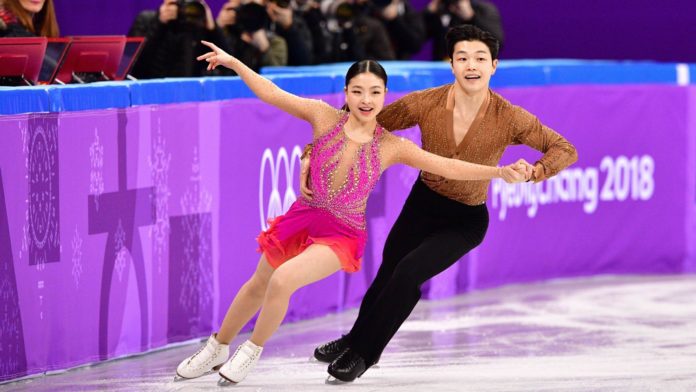Skate Canada has revised its policy to allow any two athletes, regardless of their gender identities, for domestic competition.
On Tuesday, Canada’s governing body for figure skating announced that the definition of “team” in the podium pathway for pair and ice dance teams would be changed to “a team consists of two skaters.”
The previous definition of ‘team’ was one woman and one man. According to the news release, this definition was “inconsistent with Skate Canada’s vision of Skating for Everyone and Skate Canada’s commitment to non-discrimination, including non-discrimination based on gender identity.”
Skate Canada’s Equity, Diversity, Inclusion, and Accessibility (EDIA) Operating Committee drafted and unanimously endorsed the recommendation to the committee in July 2022. The motion was presented to Skate Canada’s Board of Directors in September 2022, and it was unanimously approved.
“By updating the definition of team, many individuals in the figure skating community in Canada will have new opportunities to embrace the sport. This change is about removing barriers to participation in skating, and we believe it will have a significant impact in ensuring all gender identities are recognised and accepted equally and without prejudice,” said Karen Butcher, President, Skate Canada.
“This change has been collectively endorsed by Skate Canada and will allow for new and exciting partnerships in the pair and ice dance disciplines to compete at the national level. Skate Canada is privileged to continue the advancement of skating in Canada by making rule and policy change that allows everyone to experience the joy of skating,” she continued.
Skate Canada tweeted that there will be no new event categories and that any team would be able to compete in the pair or ice dance events at any Skate Canada national competition, CBC reported.
More from the news release:
The Podium Pathway is the final Skate Canada pathway to be revised to align with Skate Canada policies related to non-discrimination and gender diversity. The STAR and Adult pathways were adopted to the ‘two skaters’ terminology in 2019.
“It has been a privilege to work with the Skate Canada Equity, Diversity, Inclusion and Accessibility Operating Committee and push forward this proposal to update the definition of “Team” to include all pairings of gender identities,” said Kaitlyn Weaver, EDIA member and Olympian. “Ice dance is my passion, and although beautifully steeped in tradition, the future of our sport depends on looking critically and assertively at who and who is not represented. All skaters deserve to have a home on the ice— inclusive of their fullest selves. I look forward to seeing that become a reality in the competitive arena.”
Allowing any two skaters to compete through the Podium Pathway will have a significant impact on the sport development in both the pair and ice dance disciplines. This update will allow skaters to move forward with further achievements and competitive successes through the Skating to Win strategic imperative.
“It was necessary for the ice dance and pair world to change their definition of team from a man and a woman to just two people skating together, however they identify. Many colleagues and I have pushed for this change and are excited that Skate Canada has taken action to make skating more accessible,” said Scott Moir, Skate Canada coach and Olympic Champion. “Our craft is a mixture of athleticism and art and because of this we have a unique opportunity for a level playing field unlike any other sport, regardless of how individuals identify. This change will push the sport forward in many ways with the creation of new and interesting work from athletes that now can perform together.”
The definition and the language will be updated in the rule book, Podium Pathway documents, and the scoring system. Previously pair and ice dance teams required an entry of a woman and a man. Updated language of ‘skater A’ and ‘skater B’, ‘lifted partner’ and ‘lifting partner’ as well as ‘follow’ and ‘lead’ can all be used to differentiate each athlete.



